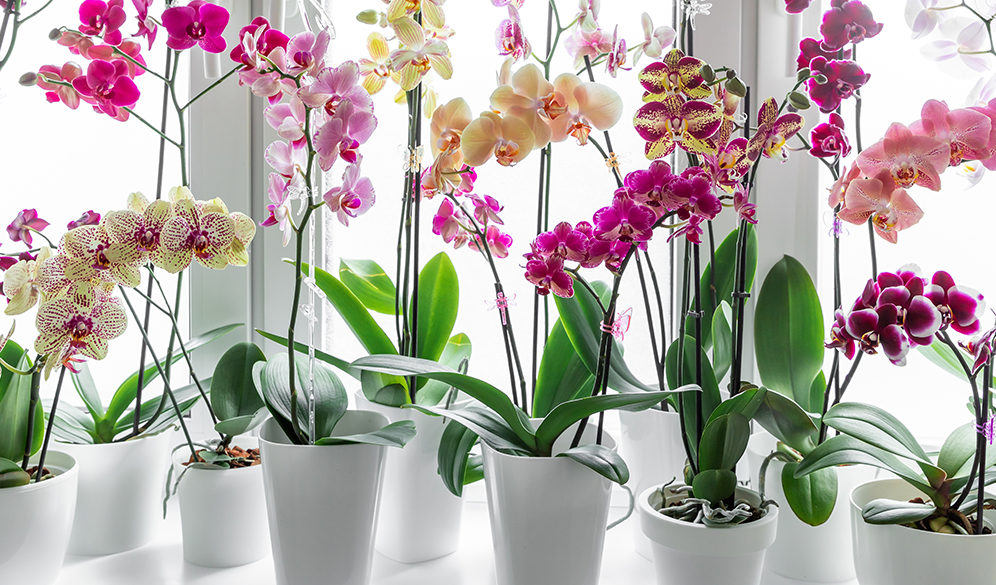Hello, darlings! Your Orchid here, speaking to you from my fabulous ceramic pot on Susan's kitchen windowsill. Yes, I know what you're thinking – "An orchid talking? How delightfully mad!" But stick with me, because after five years of successfully training my human, I've got some insider secrets that'll help you keep your orchid (me!) absolutely thriving.
Tip 1: The Location Conspiracy
First things first – we orchids are basically the Goldilocks of the plant world. Not too hot, not too cold, not too bright, not too dark. We're picky? Absolutely. Dramatic? Perhaps. Worth it? Flips imaginary hair obviously.
Your mission, should you choose to accept it, is to find that sweet spot where we get bright, indirect light. Think of it as orchid sunbathing – we want that gorgeous glow without getting a sunburn. East or west-facing windows are our red carpet, darling. South-facing windows? Only if you've got some sheer curtains to diffuse that intense afternoon sun. We're delicate flowers, literally.
Susan learned this the hard way when she first put me in direct sunlight. Let's just say my leaves went from elegant green to "I've-seen-things" yellow faster than you can say "photosynthesis." Poor dear nearly cried when she thought she'd killed me. Little did she know, we orchids are tougher than we look – we're just excellent at dramatic displays.

Tip 2: The Watering Tango
Ah, watering – the dance that makes or breaks our relationship. Here's the thing: we orchids come from tropical places where we cling to trees, not swim in soil. Our roots are basically aerial acrobats, and they do NOT appreciate soggy feet.
The ice cube method? Revolutionary! Susan drops three ice cubes on my bark mix once a week, and it's perfect. The slow melt gives my roots time to drink without drowning. It's like having a personal bartender who knows exactly how I like my water served – slowly and with style.
But here's my secret: I actually communicate my watering needs through my roots. When they're silvery-gray, I'm thirsty. When they're green, I'm good to go. Susan finally figured this out after I gave her the silent treatment (no new blooms) for two months. Sometimes you have to be firm with humans.
Tip 3: Humidity – My Spa Day Essential
Living indoors can be drier than my sense of humor, so I've trained Susan to create my personal spa environment. She keeps a humidity tray under my pot – just a shallow dish with pebbles and water. As the water evaporates, it creates this lovely little microclimate that keeps my leaves from getting crispy.
Pro tip from Orchidelia: Group us with other plants! We create our own little humidity party. Susan has a whole orchid gang now, and let me tell you, the gossip is excellent. Philodendron Paul is particularly chatty about Susan's terrible singing in the mornings.
Tip 4: The Food Situation
We orchids are like that friend who claims they're "not hungry" and then eats half your fries. We need food, but very, very carefully. Susan feeds me orchid fertilizer once a month during the growing season, diluted to half strength. "Weakly weekly" is our motto – weak fertilizer, applied weekly if you're feeling fancy.
Too much fertilizer and we get all leafy with no blooms. Too little and we sulk. It's all about that Goldilocks zone again – are you sensing a pattern here?
Tip 5: The Bloom Drama
Here's where I really shine – literally. My blooms can last for months if you treat me right. Once they start fading (and darling, we all fade eventually), don't just chop off the whole stem like some kind of botanical barbarian!
Cut just above a node on the stem, and I might surprise you with a secondary bloom spike. It's like getting an encore performance from your favorite diva. Which, let's be honest, is exactly what I am.
Tip 6: Repotting – The Annual Spa Treatment
Every couple of years, I need a fresh bark mix. It's like getting new shoes – necessary and fabulous. Susan uses a chunky orchid bark mix that lets my roots breathe. The key is waiting until I'm actively growing new roots – usually in spring when I'm feeling particularly ambitious.
The Grand Finale
Training your human to care for orchids isn't rocket science, but it does require patience. We're worth the effort, though.
Remember, we orchids aren't just surviving in your home – we're thriving, blooming, and adding a touch of tropical elegance to your everyday life. Now, excuse me while I work on my next bloom spike. These flowers don't grow themselves!


